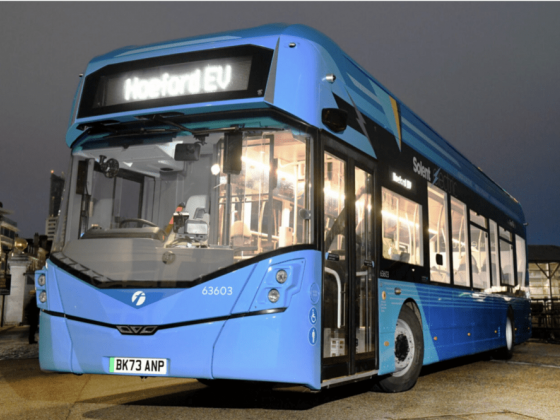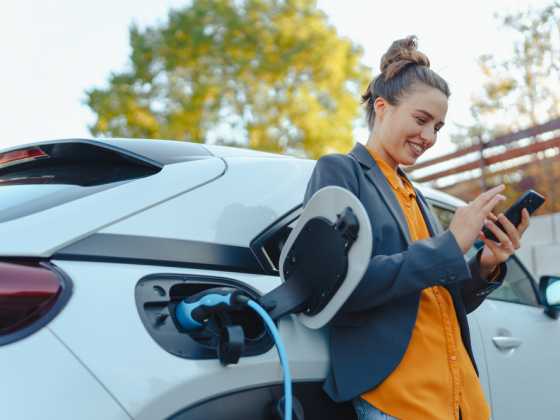Bring ban on new petrol and diesel cars forward, says BEIS Committee

The government’s target for zero emission cars by 2040 are "vague" and "unambitious", a report by the Business, Energy and Industrial Strategy Committee has said.
The Electric vehicles: driving the transition report recommends the government bring forward a clear, precise target for new sales of cars and vans to be zero emission by 2032.
The report finds that the poor provision of charging points for electric vehicles (EVs) is one of the greatest barriers to growing the UK EV market. It calls on the government to ensure charging points are provided nationwide and help local authorities access technical and financial support to develop charging infrastructure across the country, including in remote and rural areas.
Rachel Reeves MP, Chair of the Business, Energy and Industrial Strategy Committee said: "Electric vehicles are increasingly popular, and present exciting opportunities for the UK to develop an internationally competitive EV industry and reduce our carbon emissions. But, for all the rhetoric of the UK becoming a world leader in EVs, the reality is that the government’s deeds do not match the ambitions of their words.
"The IPCC report was clear on the need to encourage changes in consumer behaviour, including increasing the switch to electric vehicles, to help decarbonise our economy. But the government’s targets on zero-emissions vehicles are unambitious and vague, giving little clarity or incentive to industry or the consumer to invest in electric cars. If we are serious about being EV world leaders, the Government must come forward with a target of new sales of cars and vans to be zero emission by 2032.
"Our EV charging infrastructure is simply not fit for purpose. We cannot expect consumers to overcome ‘range anxiety’ and switch to electric vehicles if they cannot be confident of finding convenient, reliable points to regularly charge their cars. The Government cannot simply will the ends and leave local government, or private companies, to deliver the means. The Government needs to get a grip and lead on coordinating the financial support and technical know-how necessary for local authorities to promote this infrastructure and help ensure that electric cars are an attractive option for consumers".
The report finds that the current fiscal regime for EVs provides inconsistent messages about the Government’s ambitions for EVs and recommends that the Government align new fiscal changes with the zero emissions target. The Government should ensure buyers of electric vehicles benefit from preferential Vehicle Excise Duty rates and that the introduction of preferential rates on company car tax for EVs is brought forward without delay. The Government should also maintain Plug-in Grants for new electric vehicles at current levels, rather than cutting them from November (as announced by the Department for Transport on 11 October).
Rachel Reeves MP, Chair of the BEIS Committee said: "The Department for Transport’s slashing of the Plug-in Grant scheme drives the incentives of buying an electric vehicle into reverse. Cutting support is a perverse way to encourage drivers to move to non-polluting cars. This is only the latest sign of the Government’s inconsistent approach to developing the market for electric vehicles. The Committee on Climate Change has made clear in their judgements on the Clean Growth Strategy and the ‘Road to Zero’ strategy that these plans do not go far enough to tackle transport emissions, putting the UK's long-term carbon reduction targets at risk. A more joined-up and consistent approach is needed from Government if the UK is to seize the business opportunities of electric vehicles and deliver carbon emissions reductions."
The report recognises the importance of the British car industry and the need to move ahead with the transition to electric vehicles if the automotive industry is to remain globally competitive. The report calls on the government to work to create an attractive investment environment that will encourage manufacturers to locate new EV facilities in the UK.
On battery manufacturing, the report notes that other countries have already taken a substantial lead in this area and suggests that seeking to catch-up on this activity would leave the UK on the back foot. The report says that the UK can better capitalise on industrial opportunities if there is an aggressive targeting of high-value aspects of the EV and battery supply chains where the UK already holds comparative strengths. There also needs to be a focus on reskilling the existing car industry work-force so they are equipped to help lead the transition to mass use of electric vehicles.



